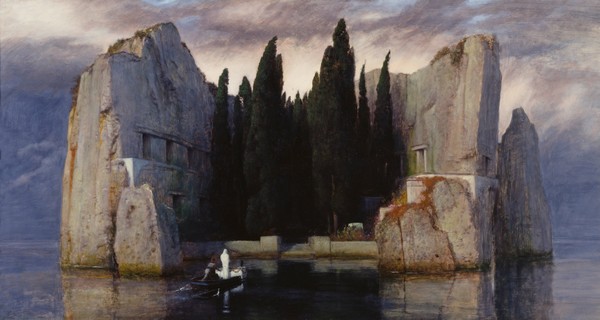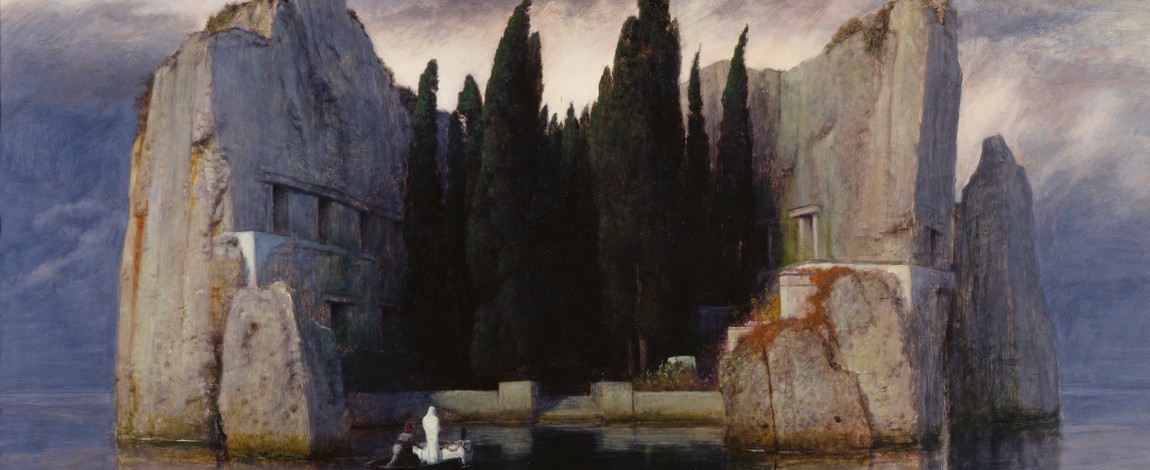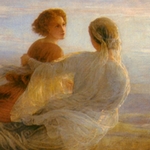
1888 was a key year for Hugo Wolf. We Lied lovers know it was when the longest, more creative time of Wolf began, two years during which he wrote more than 160 Lieder. But it was also the year that saw (at last!) his first published works. They were two collections of six songs each; one dedicated to his mother, Sechs Lieder für eine Frauenstimme, and the other, Sechs Gedichte von Scheffel, Mörike, Goete und Kerner, to the memory of his father, who had recently passed away. In total, twelve songs with poems by eight different poets, an unusual distribution in Wolf's publications.
1888 also was the year when (I repeat, finally!) his songs were first performed at a public concert. Mezzo-soprano Rosa Papier chose two lieder, one of each collection (Morgentau from the first and Zur Ruh', zur Ruh' from the second), and performed them in a recital in March, with Lieder by six more composers. Probably Wolf felt a bit awful about his company because he didn't like some of those composers (he even despised some of them); but, still, he was happy because his songs were performed. It was a success, one of them even was given as an encore. The critic who attended the concert, Theodor Helm, an old acquaintance of Wolf, reflected in his article how much the audience had loved the pieces, and praised him, but the composer became angry, don't ask me exactly why. That was our dear Wolf.
The Lied that Rosa Papier and pianist Elise von Révly performed as encore was Zur Ruh', Zur Ruh' [To rest, to rest]. I chanced on it some weeks ago and made a note in my notebook, after recalling a detail I'll tell you later, at the end of the article.
Zur Ruh', zur Ruh' is the only Lied Wolf composed after a poem by Justinus Kerner, a poet we know through Schumann's wonderful cycle, the Kerner-Lieder. If Schumann set into music some poems from the collection Dichtungen, published in 1834, Wolf chose a poem from the last collection, Winterblüthen [Winter Flowers], published in 1859. He selected the last poem; that is, he musicalized Kerner's last poem, published when he was seventy-three, three years before he died. It talks about death, liberation, the return to the peace of origins, and Wolf composed a beautiful and moving song. The tempo indication is Sehr langsam [very slow], and the first part of the song (the first two stanzas of the poem) sound like a church hymn. The second part begins with the indication ein wenig belebter, sehr innig [a little more lively, very intimate] and continues mit gesteigertem Ausdruck [with increasing expression]. When I listen to the song, it appears to me that the voice is overwhelmed by emotion until it has to be quiet.
Wolf composed the Lied in 1883, five years before it was sung and published. Why did this poem draw the attention of a twenty-three-year-old composer? We know that there isn't any connection with a loss in his family, and it's usually related to the death of someone who the composer admired and respected: Richard Wagner. Wagner died on 22 May, and Wolf composed Zur Ruh', zur Ruh' on 16 June. We don't know if this loss inspired the song, although we know it upset the young man that at his 15 managed to meet Wagner during a stay in Vienna, and spoke of it as a religious experience.
As I told you before, I remembered something about Zur Ruh', zur Ruh', which has to do with Wolf's death. During his funeral, at the cemetery, one choir sang a cappella another of his early Lieder, Ergebung. Then, one of his most loved friends, Michael Haberlandt, recited the first stanza of our poem.
We're listening to Zur Ruh', zur Ruh' performed by Georgine Resick's and Warren Jones. You know there are songs that we don't like at the first hearing, and this one could be one of them; You're experienced listeners, I hope you give it a second chance, a second audition, if that's the case.
Zur Ruh’, zur Ruh’,
Ihr müden Glieder!
Schließt fest euch zu,
Ihr Augenlider!
Ich bin allein,
Fort ist die Erde;
Nacht muß es sein,
Daß Licht mir werde;
O führt mich ganz,
Ihr innern Mächte!
Hin zu dem Glanz
Der tiefsten Nächte.
Fort aus dem Raum
Der Erdenschmerzen
Durch Nacht und Traum
Zum Mutterherzen!


















Comments powered by CComment